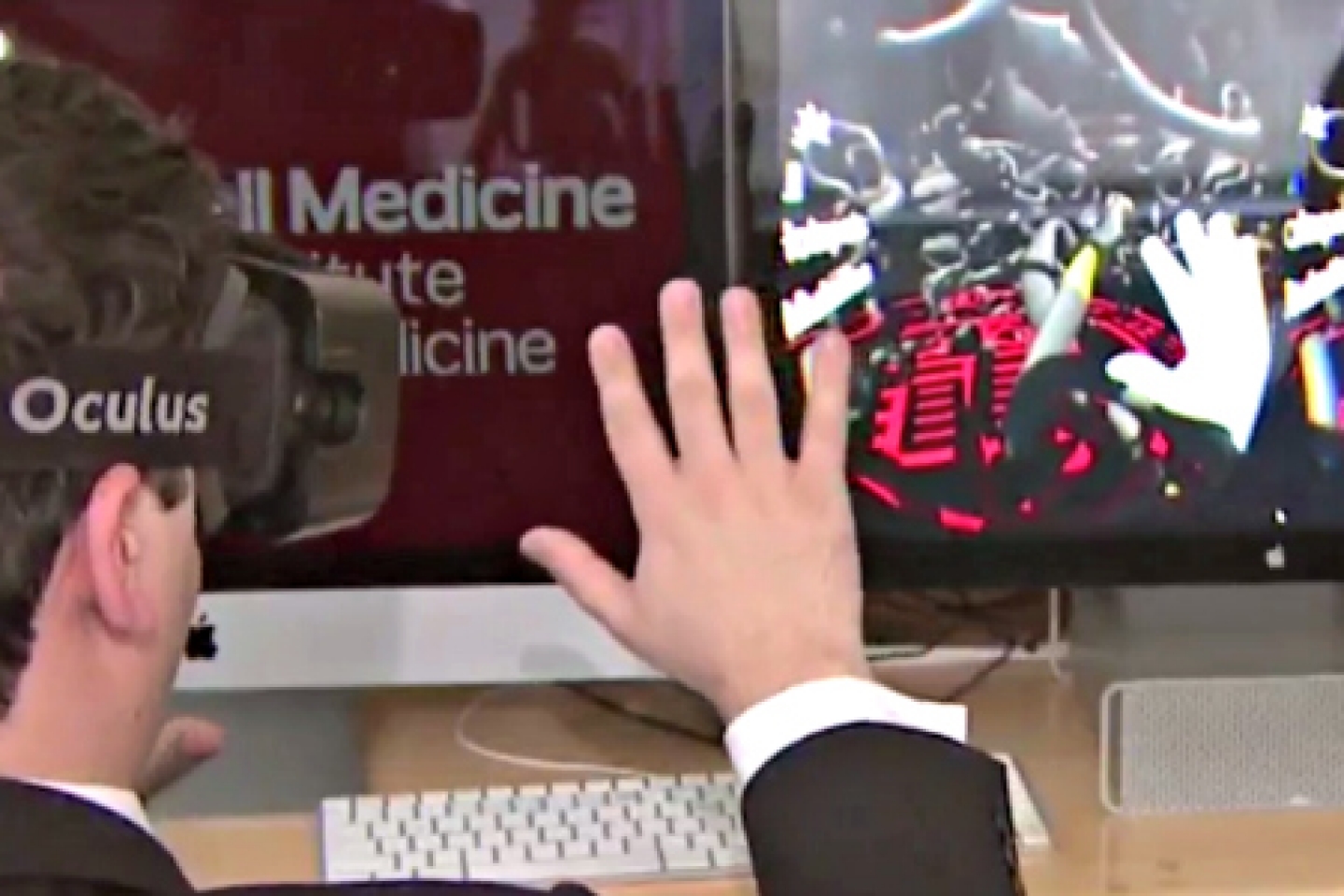
Virtual reality isn’t just for fun and games. Researchers from Weill Cornell Medicine are harnessing the technology to create interactive, 3D models to learn more about a patient’s cancer and determine its cause.
The technology would allow doctors to map the microscopic proteins inside cancerous tumors, according to Dr. Olivier Elemento and researcher Alexandros Sigaras, who have developed software for the Oculus Rift VR headset.
“Instead of just looking at numbers of how the mutation occurs, you can see it in a more visual and colorful way,” Sigaras, a research associate in computational biomedicine, told CBS New York.
Elemento, he associate director of the Institute for Computational Medicine, and Sigaras hope the models could help unlock a cure for cancer by helping researchers learn more about the protein structures in mutations. Researchers can also view other patient information like MRIs and pathology reports in the same interface.
“The physician is able to browse all of this information, it will be like ‘Minority Report,’” Elemento told the TV news station. “You’ve seen the movie where Tom Cruise is browsing things, pushing things around, bringing things in, we are trying to achieve the same thing.”
Some physicians, like Weill Cornell Medicine's Dr. Joann Difede, are already using virtual reality headsets to treat depression, substance abuse and post-traumatic stress disorder, CBS New York reported.
"What we're doing in using this kind of treatment is helping the person recall more of the story, if you will, so they can then process it and the cues to danger are extinguished," said Dr. Difede.